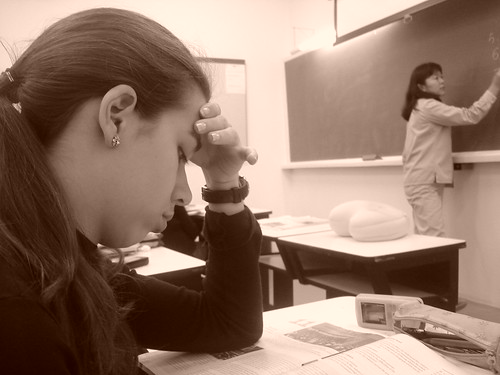The high school years are a period of intense growth. In addition to physical maturation, adolescents develop emotionally and intellectually during this time. Learning to navigate the conflicts that organically arise is a fundamental component of developing into a healthy adult. High school guidance counselors are often called upon to assist students in negotiating common conflicts, including interpersonal relationships among peers, family issues that impact the student’s academic or personal life, and conflicts with school staff.
Importance of Peer Relationships
Many high school students consider their peer relationships highly important and expend a great deal of time creating and maintaining interpersonal connections with their fellow students. Indeed, learning to negotiate the intricacies of friendships and relationships is one of the developmental tasks of adolescence. Counselors are often called upon to assist students in developing the insight to mediate these peer relationships in a way that is effective and beneficial for the student.
Common Interpersonal Conflicts Among Peers
Counselors employed in a high school setting may help students navigate dating relationships and the emotional aftermath of a relationship’s demise. These professionals also mediate issues that arise in friendships and academic relationships. Many schools also utilize counselors to instruct students about the hazards of bullying and even offer peer relationship counseling in combination with disciplinary measures when interpersonal student relationships are deemed problematic.
Pertinence of Family Issues
A second area that strongly influences the lives of secondary students relates to the student’s home life. Conflicts and maladaptive behaviors that occur in the home often impact the student’s emotional and academic life, as well. Counselors can assist students in managing the stressors and relationships at home in a way that promotes success during the student’s high school career.
Common Family-Based Conflicts
High school counselors may help students who are dealing with a family divorce or death. They are also called upon to assist when issues within the home, including abuse and addiction, produce unhealthy circumstances in the student’s own life. In these situations, secondary counselors act as a resource for students whose home lives may otherwise impact the student’s academic success in a negative fashion.
Interactions with School Staff
While many conflicts with school staff are disciplinary matters, counselors may be in a singular position to impact a student’s ability to overcome a pressing conflict or ongoing disagreement with staff. Acting as an unbiased resource, counselors can help a student gain insight into not only his own position in the conflict but also recognize the point of view of the staff member. This not only impacts the school environment but also provides the student a valuable tool for negotiating future conflicts with employers or people in positions of power.
Common Conflicts with Staff
In this capacity, counselors may see students experiencing an isolated conflict with a staff member or an ongoing personality conflict. Some issues that may arise during this type of counseling include cheating, skipping classes, disrespectful behavior, or perceived unfairness within the school system itself. The goal of this type of counseling is not to take sides with either the student or the faculty. Instead, the counselor guides the student in managing his own response to unpleasant circumstances and facilitates abstract thinking to enable the student to view a situation from multiple perspectives.
High school counselors certainly wear many professional hats. In addition to scheduling, career or college counseling, and teaching relevant classes, secondary counselors assist students in navigating conflicts amongst peers, within family units, and with school staff.
About The Author
Nick Nichols is a middle school counselor and guest author at Best School Counseling Degrees, a site with guides to top-rated school counseling degree programs.
cc licensed flickr photo shared by Orange42


